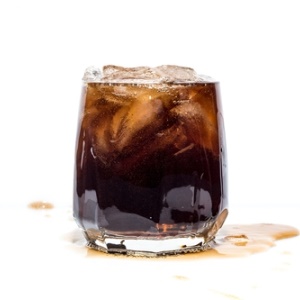
I remember writing an article on “Legislation banning the sale of fast foods” sixteen years ago. I questioned if this would protect humanity against obesity and suggested that education would probably be more useful than punitive legislation.
Billions for the state
Yesterday I heard on Sky News that the UK government is once again contemplating a tax on sugar-sweetened beverages to prevent obesity and all the other ills currently ascribed to sugar. In addition, this “sin tax” would earn billions of pounds for the state.
Read: 10 interesting sugar facts
From a health point of view, the UK plan is basically quite sensible. According to a Position Statement prepared by the Faculty of Public Health in London on “A Duty on Sugar Sweetened Beverages”, such a duty or tax is feasible for the following reasons:
- The authors of the position statement contend that regular consumption of sugar-sweetened beverages (SSBs) “causes weight gain, diabetes, dental caries and heart disease” – an attitude that is generally accepted, particularly in the current “Banting” point of view.
Some of these accusations have merit, while others do not. For example, dental caries can be prevented by rinsing the mouth with clean water after consuming any food or beverage that contains sugar or sticky carbohydrates, like bread. Not allowing infants to constantly drink milk or SSBs will prevent “baby bottle tooth decay”, while the use of fluoride and regular brushing of teeth will also help to prevent caries.
- The second point the authors make is that taxing SSBs would “very likely” reduce SSB consumption in a similar fashion to the reduction in alcohol and tobacco that has been achieved by high taxes on these products. This is undoubtedly true and I can imagine that the UK government is looking forward to this added income.
This is worrying because at some stage the government might cast their net wider and start taxing even more kinds of food. Even high-protein foods may one day be taxed because their production is linked to high carbon emissions!
- The authors further suggest a 20p per litre excise duty on SSBs and predict that in the UK this would raise about £1 billion (±R19 billion) in tax revenue. Idealistically they add that this revenue should “be ring-fenced for policies to promote children’s health and well-being”. This may work in the UK, but we all know that most governments distribute tax across their departments and there is every chance that in some countries “pop tax” could end up funding nuclear reactors or military programmes.
- The Faculty of Public Health does state that “a duty of SSBs should not be seen as a panacea for obesity, but a package of measures that can reduce obesity and other diet-related diseases”. This is probably the crux of the matter. Obesity is a highly complex condition which is influenced by so many factors that removing SSBs will likely be of temporary value and humans will replace their “sweet pop” with something equally calorific.
Historic precedents
I have always been fascinated by taxes levied through the ages on various items of food, drink, clothing and even architectural design, and the sometimes explosive results such taxes can have.
The salt tax was highly unpopular for centuries in Europe because salt was important for preserving foods (meat, cabbage as sauerkraut etc.) before the discovery of refrigeration. The British tax on tea in the American Colonies culminated in the Boston Tea Party, which some regard as the trigger that started the American Civil War.
Read: Junk food taxes pay off
The USA also went through many years of prohibition from 1920 to 1933 when the sale of alcohol was banned and the States were “dry”. Ironically, this basically well-intentioned piece of legislation had all manner of negative results:
- Policing illegal brewing, smuggling and backstreet alcohol production and sales cost the State millions of dollars.
- The closure of legitimate bars and taverns depressed the economy.
- Bootlegging and sale of illegal alcohol fuelled illegal organisations such as the Mafia and other crime syndicates.
I doubt, though, if a tax on SSBs in the UK would lead to an upsurge in crime – unless smuggling sugar becomes become as profitable as smuggling moonshine in America in the 1930s!
Sugary drinks increase diabetes
Why South Africans are the fattest in Africa
New York bans supersized sugary drinks at restaurants
Reference:
Faculty of Public Health (2015). A Duty on Sugar Sweetened Beverages - A Position Statement’, London. www.fph.org.uk.




 Publications
Publications
 Partners
Partners










